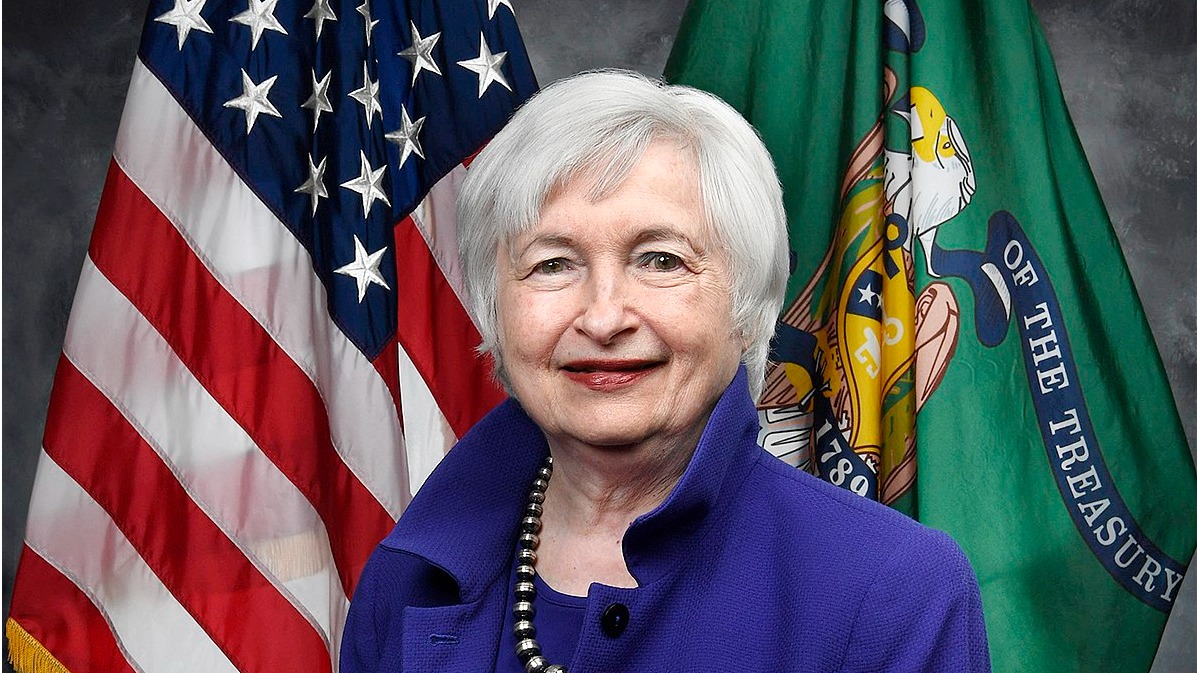US Treasury Secretary Janet Yellen firmly urged German bank executives on Tuesday to intensify their efforts in complying with sanctions against Russia and shut down any attempts to circumvent them, warning of potential penalties that could cut off their access to the dollar.
During a meeting with bankers in Frankfurt, Yellen said that the Treasury's new authority to impose secondary sanctions on banks aiding Russian military-related transactions had helped frustrate Russia's efforts to procure goods needed for its war in Ukraine, but more work was needed.
She said: "Russia continues to procure sensitive goods and to expand its ability to domestically manufacture these goods. We must remain vigilant and be more ambitious.”
In an unusually direct warning, she told the executives to police sanctions compliance among their banks' foreign branches and subsidiaries and reach out to foreign correspondent banking customers to do the same, especially in high-risk jurisdictions.
"Russia is desperate to obtain critical goods from advanced economies like Germany and the United States," Yellen said. "We must remain vigilant to prevent the Kremlin's ability to supply its defence industrial base, and to access our financial systems to do so."
Yellen's warning comes shortly after the US Treasury successfully pressured Austria's Raiffeisen Bank, the biggest Western bank in Russia, to abandon a deal involving a Russian tycoon.
Earlier this month, Raiffeisen Bank International (RBI) dropped a bid for a €1.5 billion industrial stake linked to Russian tycoon Oleg Deripaska after intense US pressure.
Yellen said the most concerning Russian sanctions evasion activity was coming through China, the United Arab Emirates and Turkey, but added that the Treasury "is working to disrupt evasion wherever we see it, from Central Asia to the Caucasus and throughout Europe."
She also sought the bankers' views on global economic and financial system stability, stating that she sees the global economy as resilient, outperforming expectations with risks broadly balanced and financial conditions eased since last year's banking turmoil.
Latest News
-
Gemini to cut quarter of workforce and exit UK, EU and Australia as crypto slump forces retrenchment
-
Bank ABC’s mobile-only ila bank migrates to core banking platform
-
Visa launches platform to accelerate small business growth in US
-
NatWest to expand Accelerator programme to 50,000 members in 2026
-
BBVA joins European stablecoin coalition
-
eToro partners with Amundi to launch equity portfolio with exposure to ‘megatrends’
Creating value together: Strategic partnerships in the age of GCCs
As Global Capability Centres reshape the financial services landscape, one question stands out: how do leading banks balance in-house innovation with strategic partnerships to drive real transformation?
Data trust in the AI era: Building customer confidence through responsible banking
In the second episode of FStech’s three-part video podcast series sponsored by HCLTech, Sudip Lahiri, Executive Vice President & Head of Financial Services for Europe & UKI at HCLTech examines the critical relationship between data trust, transparency, and responsible AI implementation in financial services.
Banking's GenAI evolution: Beyond the hype, building the future
In the first episode of a three-part video podcast series sponsored by HCLTech, Sudip Lahiri, Executive Vice President & Head of Financial Services for Europe & UKI at HCLTech explores how financial institutions can navigate the transformative potential of Generative AI while building lasting foundations for innovation.
Beyond compliance: Building unshakeable operational resilience in financial services
In today's rapidly evolving financial landscape, operational resilience has become a critical focus for institutions worldwide. As regulatory requirements grow more complex and cyber threats, particularly ransomware, become increasingly sophisticated, financial services providers must adapt and strengthen their defences. The intersection of compliance, technology, and security presents both challenges and opportunities.
© 2019 Perspective Publishing Privacy & Cookies



.jpg)









Recent Stories